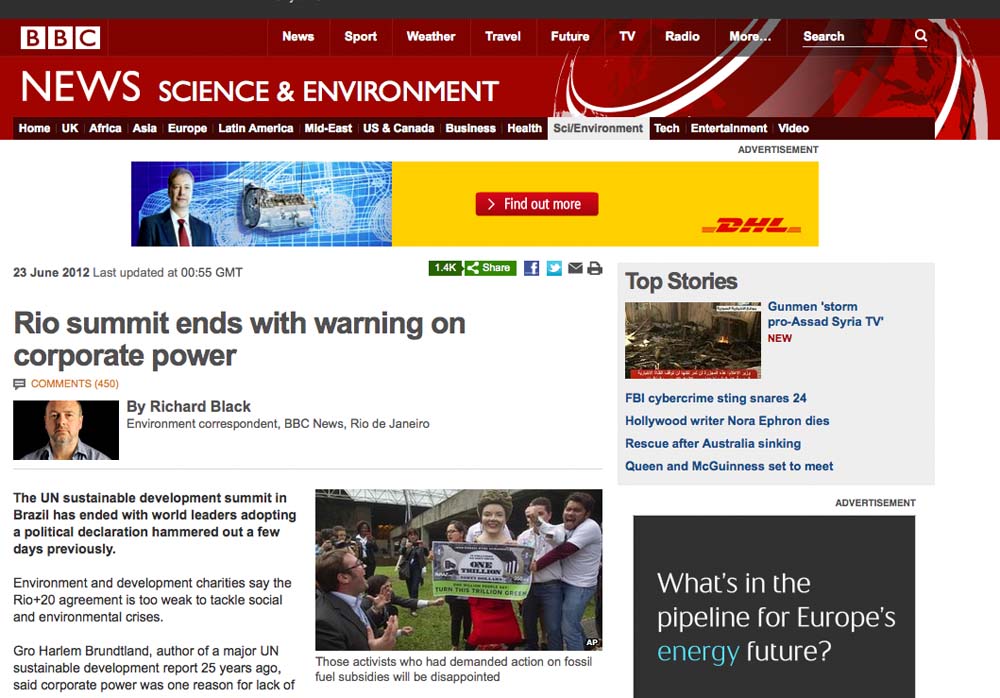Moves to eliminate subsidies on fossil fuels – recommended in a number of authoritative reports as likely to boost economies and curb CO2 emissions – came to naught at the Rio Summit, the BBC reports.
The UN had billed the Rio+20 United Nations Conference on Sustainable Development, held in Rio de Janeiro last week, as a ‘once in a generation chance’ to turn the global economy on to a sustainable track. Yet environment and development charities, interviewed by the BBC, say the agreement reached is too weak to tackle social and environmental crises. Gro Harlem Brundtland, author of a major UN sustainable development report 25 years ago, said corporate power was one reason for lack of progress during the summit.
Lobbies from corporations might indeed be one of the reasons for the meagre results obtained in Rio de Janeiro, associate professor Karel Mulder (TPM, section Technology Dynamics and Sustainable Development) says. Yet he thinks there is more to it.
“During periods of economic crises, like we have now, politicians tend not to think too much about sustainable development. It is a kind of Pavlov reaction. No, we don’t have time for that now, they say. On the contrary they should focus on sustainability to boost the economy. If the government would for instance stimulate the construction sector – which has now come to a dead end – to make houses much more energy efficient, this would help the construction sector and make the country as a whole less depend on energy and raw materials. It would help get us out of the recession.”
Mulder was himself invited to attend the summit and give a speech about the importance of lecturing on sustainable development at universities. But he decided not to go, because he foresaw that this would be a summit of no value. “It’s just another conference where people come together and toss smart words at one another and which in the end results in absolutely nothing. Yes, I’m cynical. It seems that world leaders can no longer reach agreements.”
Times have changed since the 1980s and 1990s, Mulder stresses. The Montreal Protocol on Substances that Deplete the Ozone Layer, which was signed in 1987, was a success. And to some degree the Kyoto Protocol from 1997, aimed at fighting global warming, was also a success.
Mulder: “The depletion of the ozone layer could be illustrated with very clear pictures. People sensed the urgency. And what may have helped for the Kyoto Protocol to become a success was the fact that energy was scarcer due to world conflicts. It now just looks as if the spirit is gone. A stronger sense of urgency is needed. Scarcity of raw materials, the decline of biodiversity and climate are big issues.”
“Maybe if we have a few very hot summers, people will believe this is due to climate change and this will stir things up.” This happened about a decade ago. He laughs: “The link between hot summers and climate change is often – wrongfully – made in the media.”



Comments are closed.